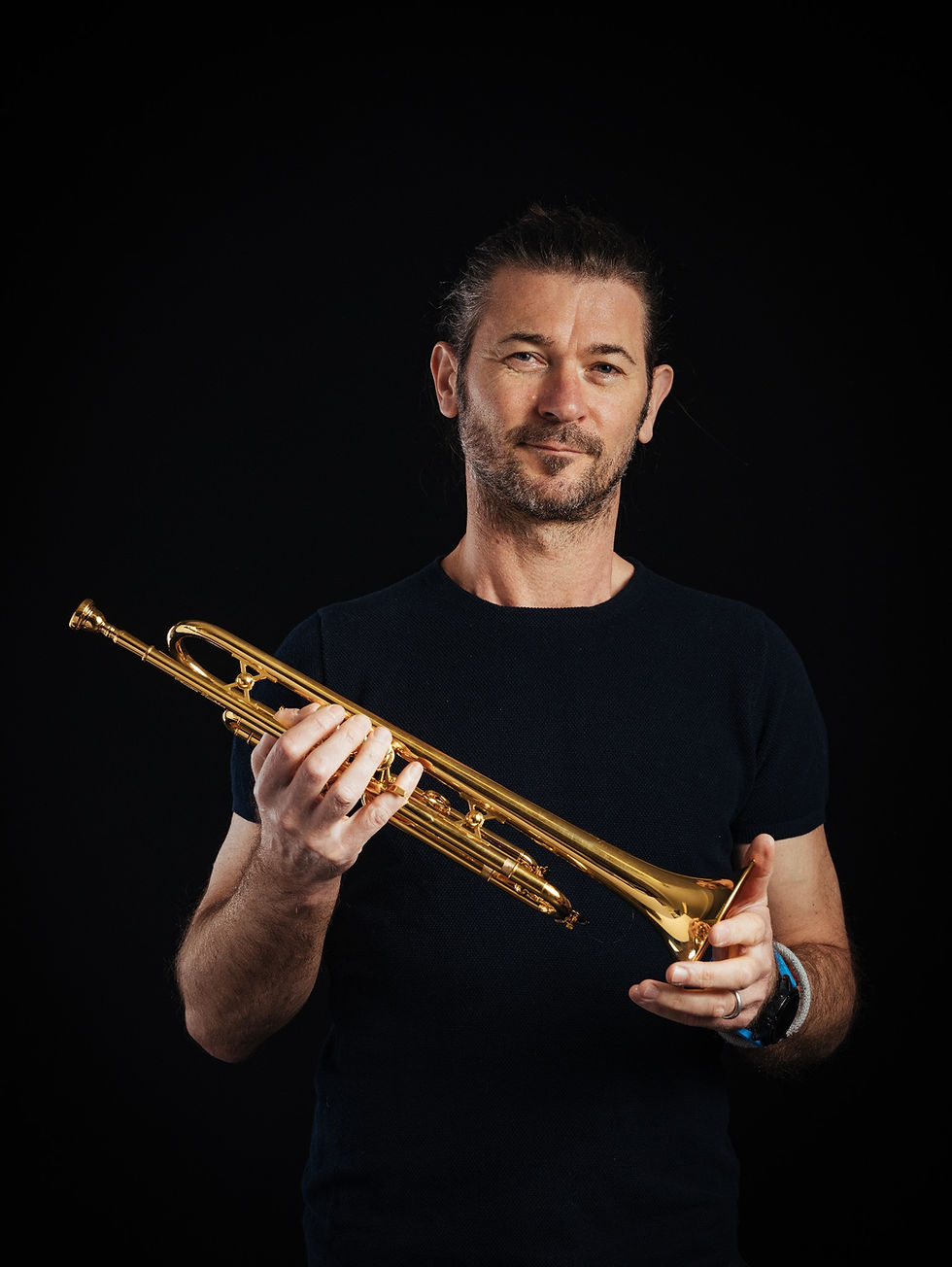Eric Baker Interview
- Görkem Çavuş
- Sep 3, 2024
- 4 min read

1.Could you give us some information about your journey in your music career? How did you start playing the trumpet?
I started playing at age 11. I joined the school band and wanted to play percussion, but my parents said “No way! That’s too loud.” I chose trumpet, and I’m so glad I did!
2. You earned a BM degree in Music Education at the University of Texas and a Master's degree in Trumpet Performance at Arizona State University. What were the differences between these two experiences and how did they contribute to you?
My first degree in Music Education trained me to be a band director, but I realized that in the state of Texas, band directors don’t always get to perform that much. I loved playing and decided to pursue a performance degree for my Masters. It was the perfect path for me because after graduate school I got a job playing in an orchestra and teaching band at a local college. I enjoy a balance of teaching and performing that many people would love to have. I am very grateful for all of my college professors.
3. What are the benefits of working with different groups such as Lone Star Brass Quintet, Current Nine, The Pinstripes Jazz Quartet and Emily & the Rhumba Kings?
I teach my students that “the more versatile you are, the more marketable you are!” That means if you have experience in lots of different musical styles, you can make more money than people who don’t know multiple styles. The Lone Star Brass Quintet is made up of the principal players of the West Texas Symphony. We perform standard brass quintet literature at recitals and we get asked to play weddings, lunch concerts, and other gigs around town. The group is phenomenal and we all get along well with each other. Current Nine is a 9-piece rock band with horns. We play wedding receptions, corporate parties, fundraisers, and community celebrations. That group is fun because I get to play pop, rock, funk, and jazz music. “Emily & the Rhumba Kings” is a jazz quintet that plays for local ballroom dance clubs. It is great to have another ensemble to play in and it is a different kind of challenge than the other groups I play in.
4. How does it feel to be invited as a soloist to the Western International Band Clinic in Seattle, WA and to be a semi-finalist in the National Young Artists Competition?
A) Those were two formative experiences for me in my career. It was wonderful to be invited to play “Napoli” with a local high school band on their trip to Seattle, Washington. I enjoyed working on such a difficult and virtuosic piece. We made a few changes to the arrangement and let the students have some fun with it! They enjoyed seeing a professional musician make creative choices and allow them to have some creative freedom.
B) Performing in the “National Young Artist Competition” (originally sponsored by the Midland-Odessa Symphony & Chorale) was another important milestone in my career. I prepared the Henri Tomasi Trumpet Concerto and made it to the semi-finals. Although I didn’t win, two years later I was invited to be a guest soloist with the West Texas Symphony where I performed the Alexander Arutunian Trumpet Concerto at the symphony’s first concert in their new performance hall. It was a wonderful experience!
5. Can you share some of your biggest achievements in your music career?
I have been so fortunate to enjoy many wonderful experiences. Here are a few that come to mind:
Winning the Drum Corps International World Championships in 2000 and 2002 with The Cavaliers Drum and Bugle Corps.
Performing Mahler’s Symphony No. 2 with the Arizona State University Orchestra
Performing the Alexander Arutunian Trumpet Concerto with the West Texas Symphony
Performing with my friends in the Lone Star State Trumpet Guild at the ITG conference in 2018
I am happy with my work as Department Chair for Visual & Performing Arts and the way I was able to improve the educational outcomes for our students
6. You play an active role in education and training. What are the main principles you focus on when working with your students?
a) When I play and teach trumpet I rely on fundamentals. I focus on tone quality, flexibility, articulation, musicality/expression, and technique. I teach my students to work on playing as efficiently as possible. I want them to get the most resonant sound with as little effort as possible.
b) I teach them to buzz their mouthpiece, we do ear training, singing, etc. Regardless of what style of music they are playing, I want them to be prepared to make “music.”
c) Lastly, I make sure to have fun! I want my students to know that there is life outside of music and that they should have hobbies, friends, and family time while studying music. Yes, we need to be practicing and dedicated, but we also need to interact with people and pursue things that help us develop as human beings.
7. How would you describe your musical style and which genres do you enjoy performing in the most?
I play lots of styles and I try to bring something of myself in each of them. I prepare my symphony works by listening to the standard recordings of the top orchestras, and I try to make my performances a blend of the accepted styles and my own interpretation. Of course, I always do exactly what the conductor wants!
8. What are your future plans and goals in your music career?
My mission in life is to empower others to do the things that inspire them. I intend to continue teaching and playing, and to keep making new friends in my pursuit of music. Honestly, the relationships are the best part. Thank you so much for this opportunity!



Comments